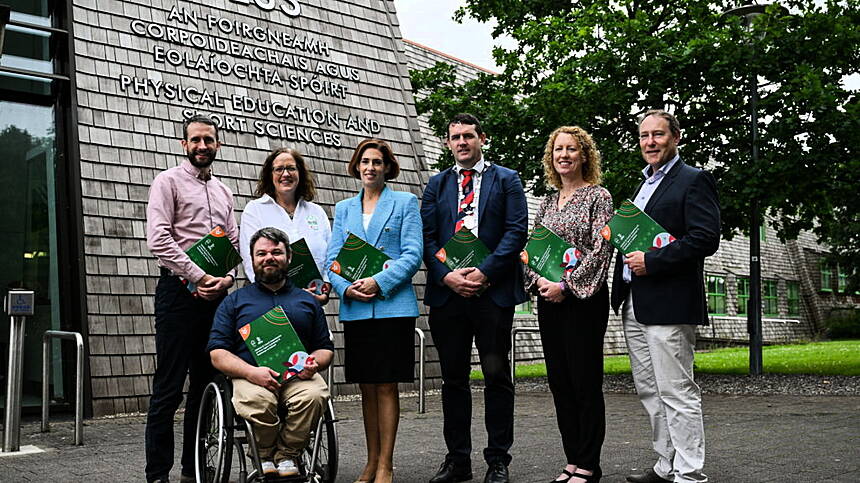Girls losing out - girls begin participating in sport nearly a decade later than boys
More difficulty for those who acquire a disability to participate in sport
Barriers to participation include high costs, lack of accessible facilities, inadequate equipment, and reliance on others.
Today marked a significant milestone for disability sport in Ireland with the official launch of Gateways & Pathways: Athlete and Coach Experiences of Para Sport in Ireland. The event, held at the University of Limerick, brought together leading voices from Government, sport, and academia to unveil the most comprehensive research to date into the lived experiences of Para athletes and coaches nationwide.
The study, a collaboration between Paralympics Ireland and the University of Limerick, was officially launched by the Minister for Disability, Hildegarde Naughton TD. Other speakers included Neasa Russell, Sport Director and Chief Operating Officer of Paralympics Ireland; Dr Séan Healy, the project’s lead researcher and Associate Professor of Physical Activity and Sport Participation at UL; and Alan Dineen, Research Assistant and Irish Wheelchair Rugby player.
The research paints a vivid picture of the barriers faced by people with disabilities in accessing sport in Ireland. It reveals that girls with disabilities begin participating in Para sport nearly a decade later than boys, pointing to a stark gender disparity that limits early engagement. The study also finds that individuals with acquired disabilities face significantly more obstacles to participation than those with congenital disabilities. Despite these challenges, the report highlights the profound impact of Para sport in improving physical and mental health, fostering independence, and enhancing quality of life for participants.
A central theme of the report is the untapped potential of schools, families, and rehabilitation settings as entry points into sport. These environments, the study finds, are critical to long-term engagement but remain underutilised. The research calls for targeted investment in local programmes, increased access to trained coaches, and improved availability of adaptive equipment to create more inclusive sporting opportunities across Ireland.
"Speaking at the launch, Dr. Sean Healy, lead researcher on the project, emphasised that the findings must be a catalyst for change. “This research is a call to action. By identifying where the system is falling short, we now have the opportunity to reshape how Para sport is delivered in this country. The recommendations offer a clear roadmap for making sport more inclusive, equitable, and impactful for people with disabilities.”
The Minister for Disability, Hildegarde Naughton TD, said: “Sport and physical activity is crucial for the health and wellbeing of our society. I am a firm believer that all people should have the right to enjoy sport which brings so much to all our lives. It keeps us healthy, and it is the backbone of our communities. Despite recent and welcome progress, there remains an enduring participation gap between persons with a disability and those living without such challenges. The research we are publishing today will form a critical part of how we will continue to work together, as a Government and a sporting community, to break down barriers to sport.”
Neasa Russell, Paralympics Ireland’s Chief Operating Officer remarked: “This research shines a powerful light on both the barriers and the opportunities within Irish Para sport. It confirms what many in our community have long felt – that access is unequal, especially for girls and for those who acquire a disability later in life. But it also highlights the transformative role sport can play when those barriers are removed. Our job now is to act on these findings and ensure that every person with a disability, regardless of gender, age, or background, has a clear and supported pathway into sport. That is the vision we are committed to delivering.”
Paralympics Ireland and the University of Limerick will now begin working with key stakeholders to disseminate the findings and explore practical steps to implement the recommendations. The launch represents not just the release of a report, but the beginning of a broader national conversation about equity, opportunity, and excellence in Para sport.







